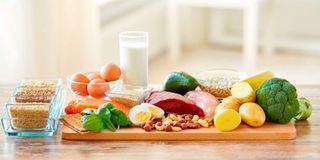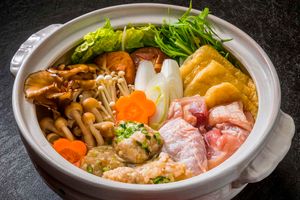Food diary for teen girls: Why you need a healthy diet

What you need to know:
- A healthy diet during your teenage years has many benefits.
- Besides physical health, your emotional stability and productivity are also dependent on a healthy diet.
Eating junk food is not only unhealthy but will also deny you the nutrients your body needs, which can lead to serious health problems as you grow older.
Benefits of a healthy diet
A healthy diet gives you high energy levels, strong bones, improves your mood, and helps increase your concentration.
Food not only provides the body with sustenance but also emotional satisfaction and happiness. Healthy diets are helpful in adolescent growth, both physically and emotionally. Unhealthy food can lead to conditions such as obesity, diabetes, and high levels of cholesterol.
Here is a list of foods and minerals that are good for your health
Carbohydrates
Girls need approximately 2,200 calories per day to sustain their growth and development as they transition into adulthood. Carbohydrates will give you the energy you need to get through the day and provide your brain with fuel.
Consider eating foods such as rice, bread, pasta, and potatoes because they are high in carbohydrates. Plan to have a serving of carbohydrates with every meal or snack.
Proteins
Teenage girls need protein because it builds and maintains all the body's organs, tissues, and glands. Proteins are also essential for maintaining a healthy weight. Protein deficiency can have devastating effects on your health, such as lack of growth and development leading to serious health problems later in life. Lack of protein may make you feel tired or moody as well.
Good sources of protein include lean meat such as chicken breast, eggs, beans, and dairy products. It is also important to eat different types of proteins every day because you need different kinds of amino acids. Protein deficiencies can be detected by testing levels of blood albumin or weight loss from muscle tissue.
Healthy fats
Adding high-fat food to a meal comes with many benefits. The human body relies on fats for hormone production, memory development, and nutrient absorption. Fat helps you feel fuller for extended periods, which can prevent overeating and weight gain. Fatty fish, avocado, sunflower, sesame, and pumpkin seeds are rich in healthy fats.
Fruits & Vegetables
Fruits and vegetables are full of essential vitamins, minerals, plant nutrients, and fibre. They also give you protection from diseases such as heart diseases. If you eat raw fruits or vegetables, ensure you clean them well to avoid consuming any bacteria.
Water
During workouts, drink the required amount of water to replace whatever is lost through sweating. Water also gives the stomach a feeling of fullness, which can prevent overeating and weight gain. Adequate intake of water also clears up your skin.
Ensure the water is clean and safe for consumption to avoid exposure to illness.
Zinc
Zinc is an essential mineral that helps to strengthen the immune system. It also aids in tissue repair and healthy cell growth, leading to robust and healthy hair and nails. Foods such as oysters, meat, cheese, and beans are perfect sources of zinc.
Iron
Teenage girls are at a higher risk of iron deficiency than boys because of menstruation. Iron helps red blood cells carry oxygen throughout the body, which leads to an increased energy level. Unfortunately, iron deficiency is quite common among young women. Therefore, as a teenager, consider adding iron-rich foods such as liver, red meat, nuts, eggs, or fortified cereal to your diet.
Calcium
Girls should also ensure they get enough calcium in their diet to promote healthy bone growth. This is particularly important during the teenage years when bones are still developing. Dairy products such as milk, yogurt, and cheese are excellent sources of calcium. Alternatively, you can meet your calcium needs by eating fortified foods or calcium-set tofu.
Are there foods that you should avoid?
It is essential to limit refined sugar intake, processed meats (such as hot dogs, bacon, and ham), fast foods, and anything with high sodium, like canned vegetables or soup. These foods can lead to weight gain or a higher risk of diseases, such as diabetes. They also contain many chemicals which are not suitable for your health. In addition, smoking, drug abuse, and alcohol intake are harmful to your health. In severe cases, they can lead to death.
Live a healthy life
A healthy diet during your teenage years has many benefits. When you eat nutritious meals, you give your body the fuel it needs to take on any challenge and function optimally. Besides physical health, your emotional stability and productivity are also dependent on a healthy diet.



